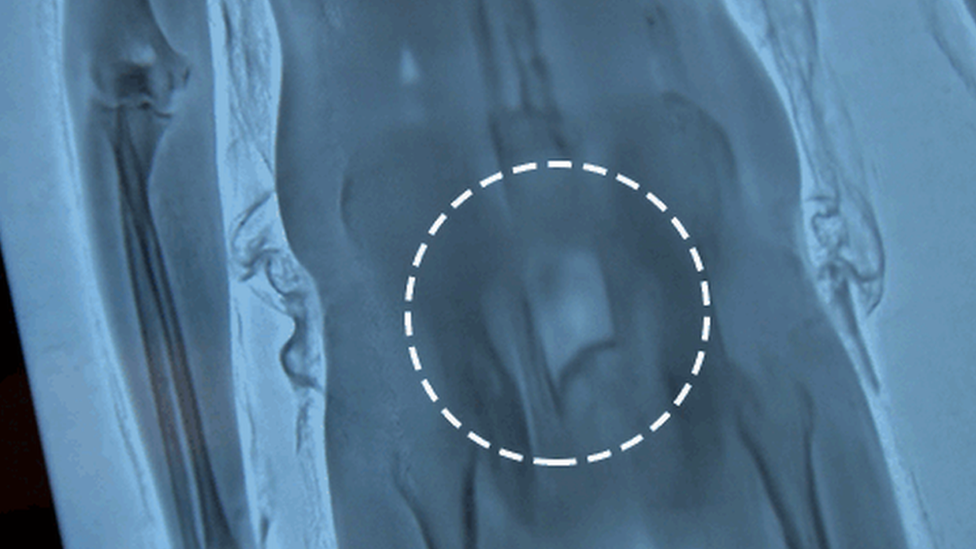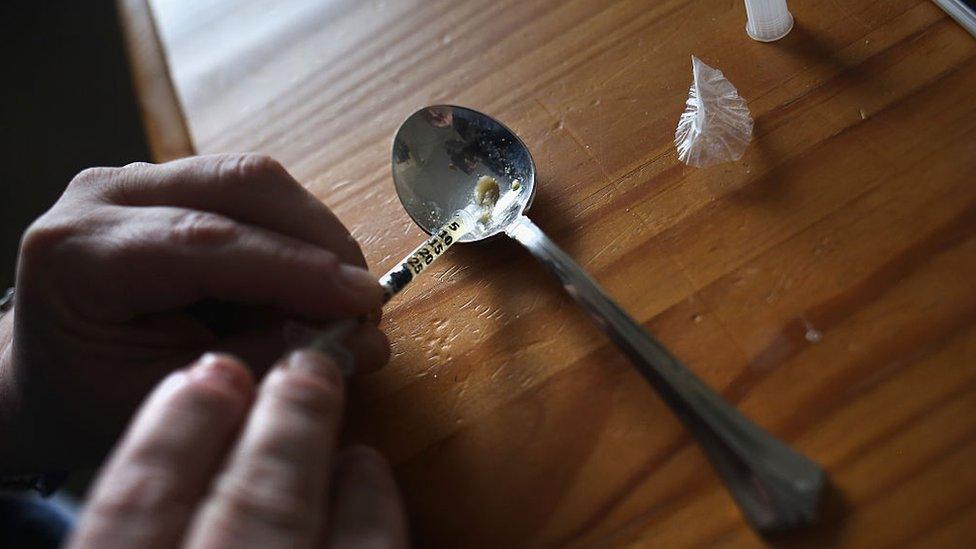Illegal drugs 'almost as easy to get as pizza'
- Published
Quicker than takeaway: BBC News investigates quick delivery of drugs in Leeds
More illegal drugs than ever before are coming into the UK - and buying them is almost as easy as ordering a pizza, the author of a major new report has said.
Dame Carol Black also found that an "unprecedented" number of children and teenagers are being drawn into the drug trade through county lines gangs.
Her drugs review, external put the costs of the illicit trade in crime and to society at about £19bn a year in England.
The government said it was taking "tough action" to combat illegal drugs.
Dame Carol, who the Home Office asked last year to review drug supply and demand in the UK, presented her findings on Thursday.
The "widespread" use of children to supply drugs was the "most alarming" recent development, she told the UK Drugs Summit in Glasgow.
Her report also found that the illicit drugs market in the UK is worth £9.4bn a year, with about three million people in England and Wales taking them last year.
Dame Carol told the conference: "We have an abundant supply coming into our countries from around the world, more than ever before.
"It's purer, it's more available, you can buy whichever drug you want almost anywhere.
"It wouldn't be too far to go to say it's almost for some drugs as easy as getting your pizza."
The comparison came after an investigation by BBC News found it took just 27 minutes to receive an order of cocaine from a drug dealer in Leeds.

Weathering the 'perfect storm'

The key conclusion of Dame Carol Black's report on illegal drugs - that a "perfect storm" has developed that can be abated only through government intervention - is based on compelling evidence from an impressive array of statistics and information.
The headline figure - the £19bn cost to society of illicit drugs in England - is designed to act as a wake-up call.
It is about half of the National Crime Agency estimate of the total cost of serious and organised crime to the UK economy and around three times as much as the cost of treating and dealing with the effects of obesity in England.
There is no simple solution to reducing the economic costs of drug-taking, not to mention the human toll, but Dame Carol indicates there must be investment in treatment.
A report from Public Health England in 2014 found that every pound spent on drug treatment saved £2.50 in costs to society.
However, her review raises more questions than answers about the overall effectiveness of law enforcement activity on illicit drugs, saying crackdowns have little impact on supply and may increase violence by creating a gap in the market for dealers to battle over.

Dame Carol highlighted the effect of government funding cuts on drug recovery support services - which she said were "disappearing" in certain areas.
She said: "At the same time we have seen a reduction in very good treatment and recovery, and that again all adds up to leave us, as you will see in this report, with the perfect storm.
"I believe this perfect storm will not go away unless government takes action."
Her report, which was released to coincide with a drugs summit held by the UK government in Glasgow, said drug-related deaths are at an all-time high, while the market is becoming increasingly violent.
It found 300,000 people in England used the most harmful drugs - opiates and crack cocaine - last year.

The review said the "county lines" model is now a widely-used method for supplying the most serious drugs.
County lines is a tactic which sees gangs and distribution networks from cities move into smaller towns and use violence to overtake local drug dealers.
The model relies on children or other vulnerable people to sell drugs.
Crime minister Kit Malthouse, who is chairing the Glasgow summit, said: "The findings, which we will discuss today, are troubling and paint a stark picture of how illegal drugs are devastating lives and communities, and fuelling serious violence.
"We are already taking tough action to combat county lines and violent crime and to disrupt and prosecute the organised gangs that bring so much misery. But clearly we all need to do more."
- Published4 January 2019

- Published23 December 2019
- Published4 January 2020
